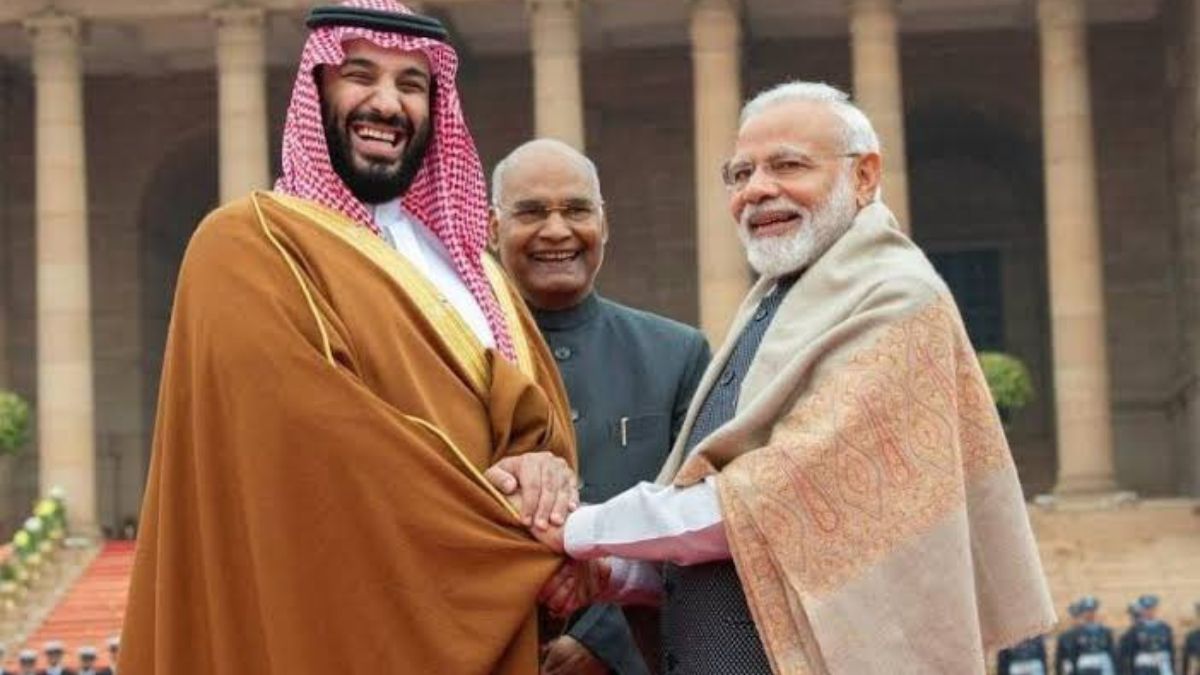OPINION | PM Modi’s Saudi visit: A strategic leap amidst turbulence
 Prime Minister Narendra Modi with Saudi Arabia Crown Prince Mohammed Bin Salman | X
Prime Minister Narendra Modi with Saudi Arabia Crown Prince Mohammed Bin Salman | X
Prime Minister Narendra Modi's April 2025 visit to Saudi Arabia marked a pivotal moment in Indo-Saudi relations, underscoring a multifaceted partnership that spans energy, defence, technology, and cultural ties. Despite being curtailed due to a tragic terrorist attack in Pahalgam, Jammu and Kashmir, the visit yielded significant agreements and reaffirmed the deepening bond between the two nations. PM Modi's arrival in Jeddah was historic, being the first visit by an Indian prime minister to the city in over four decades. The ceremonial welcome, including a 21-gun salute and a Royal Saudi Air Force escort, highlighted the significance Saudi Arabia places on its relationship with India. This visit was Modi's third to the Kingdom, reflecting the ongoing commitment to strengthening bilateral ties.
Strategic Partnership Council: Deepening cooperation
Central to the visit was the second meeting of the India–Saudi Arabia Strategic Partnership Council (SPC), co-chaired by Modi and Crown Prince Mohammed bin Salman. The SPC serves as a platform to institutionalize bilateral cooperation across various sectors, including defense, energy, and technology. The leaders reviewed progress since the Council's inception and set the stage for future collaborations. Energy cooperation remains a cornerstone of Indo-Saudi relations. The two countries agreed to enhance collaboration in the supply of crude oil and liquefied petroleum gas (LPG), reinforcing Saudi Arabia's role as one of India's primary energy suppliers. Additionally, discussions on joint refinery and petrochemical projects signify a move towards deeper industrial integration. In defence, both nations committed to expanding ties, including cooperation in defence manufacturing. This aligns with India's push for indigenization of defence production and Saudi Arabia's Vision 2030 goals.
The joint statement emphasised the importance of counter-terrorism cooperation, especially in the wake of the Pahalgam attack. The visit also spotlighted emerging areas of collaboration. India and Saudi Arabia signed a Memorandum of Understanding to enhance cooperation in technology sectors such as artificial intelligence, cybersecurity, and digital governance. Tourism emerged as another focal point, with both countries agreeing to promote sustainable tourism practices and cultural exchanges. Recognising the importance of cultural diplomacy, the leaders discussed initiatives to boost cooperation in education, media, and sports. These efforts aim to foster mutual understanding and strengthen the bonds between the peoples of both nations. Modi's visit also addressed the concerns of Indian Muslims undertaking the Hajj pilgrimage. India's Hajj quota for 2025 increased to 1,75,025, up from 1,36,020 in 2014. However, logistical challenges have left approximately 42,000 pilgrims unable to make the journey this year. Discussions with Saudi authorities aimed to streamline processes and ensure better support for Indian pilgrims.
A visit marked by tragedy
The visit was overshadowed by a terrorist attack in Pahalgam, resulting in 26 deaths. In response, PM Modi cut short his trip, skipping the official dinner and returning to India. The Crown Prince condemned the attack, and both leaders reaffirmed their commitment to combating terrorism in all forms. Despite the unforeseen tragedy, PM Modi's 2025 visit to Saudi Arabia reinforced the resilience and depth of Indo-Saudi relations. The agreements signed and discussions held during the visit underscore a shared vision for a strategic partnership that transcends traditional sectors, embracing innovation, cultural exchange, and mutual security concerns. To further contextualise PM Modi’s visit, it is important to recognise the strategic recalibration that both nations are undertaking in response to shifting global dynamics. The Indo-Saudi partnership is increasingly being shaped not only by bilateral interests but also by the evolving multipolar world order. India’s active engagement in the Gulf reflects a broader foreign policy strategy that prioritises connectivity, economic diversification, and energy security.
For Saudi Arabia, closer ties with India serve its ambition to emerge as a global investment hub under Vision 2030. The visit, therefore, signifies more than a series of agreements—it marks a deeper strategic convergence with long-term implications for regional stability and global geopolitics. As both nations navigate the complexities of the 21st century, their collaboration serves as a model for bilateral engagement rooted in mutual respect and shared aspirations.
Dr Anu Sharma is assistant professor, Amity Institute of Defence and Strategic Studies, Amity University, Noida.
Opinions expressed in this article are those of the author and do not purport to reflect the opinions or views of THE WEEK.
India